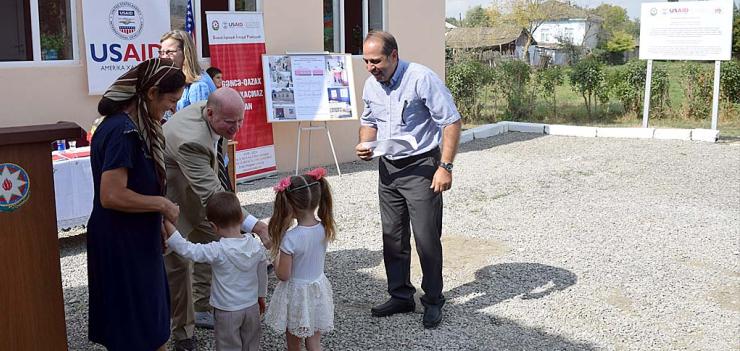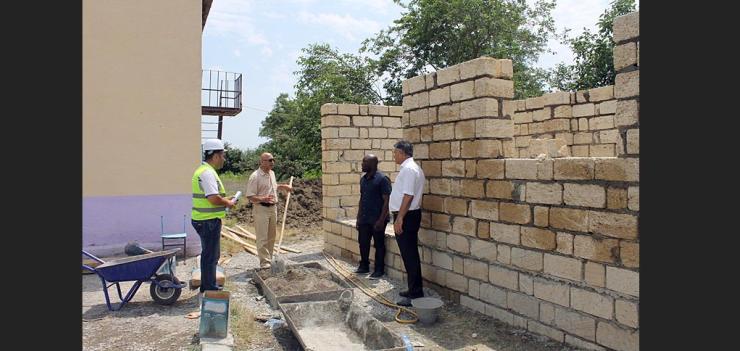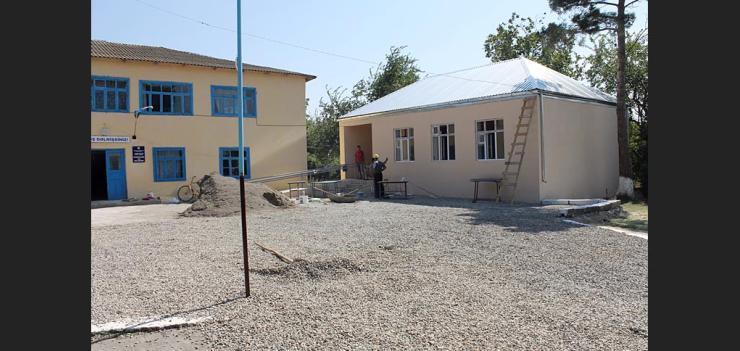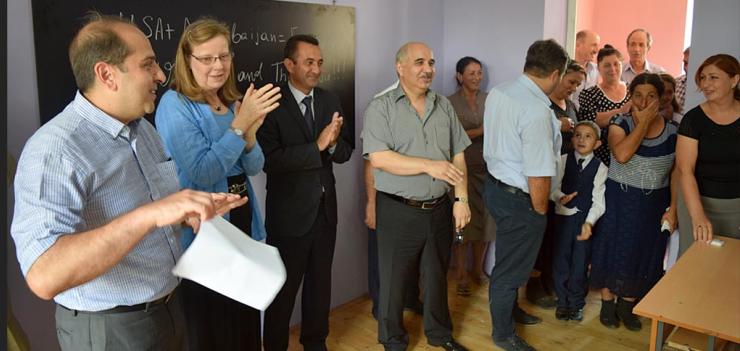The Niyazabad community in Khachmaz rayon, Azerbaijan, is home to one village school that is located in a building that belonged to the former village’s farm (sovkhoz) and consists of 13 rooms. The building was constructed in 1965 and does not comply with modern education and safety requirements. The classrooms are separated by panels instead of walls which hinder school children from concentrating on their lessons. Additionally, classrooms are over-crowded as rooms are too small and do not have enough desks for the 15-20 children in each class. In fact, the building itself is in a state of disrepair and no renovation has been done since its initial construction. The poor condition of the building, poor lighting, lack of sufficient space and the shortage of furniture have resulted in inadequate educational conditions for children of Niyazabad.
To address this issue, the Niyazabad Community Development Council worked with EWMI’s Socio-Economic Development Activity in Azerbaijan (SEDA) project to construct two additional rooms and 1 corridor in the school which have significantly improved educational conditions for 210 pupils of the Niyazabad village with joint funding from USAID, the Government of Azerbaijan, the local municipality, and community members.
On September 10, residents of the Niyazabad community of Khachmaz rayon, representatives of the local government and the municipality, officials from the Ministry of Economy and Industry (MEI), and USAID representative gathered to mark the successful completion of the construction of two additional rooms for the village school for Niyazabad community. The rooms were constructed by a local NGO, UMID, and co-financed by the governments of the United States and Azerbaijan.
“The construction of these rooms made us realize how important it is to work together on something that will bring benefit to our children,”- said Donna Stauffer, USAID/Azerbaijan Acting Mission Director. She also thanked the community for their dedication to mobilize local resources to improve their living conditions.
Matlab Jafarov, the representative of the MEI in Guba-Khachmaz region, described various infrastructure projects in the regions financed by the Azerbaijani government for improving the living conditions of the population. Mr. Jafarov praised the cooperation with USAID under the SEDA project and emphasized its contribution to the State Program on Socio-Economic Development of the Regions.
Implemented by the East-West Management Institute with support from the Ministry of Economy and Industry and the Council for State Support to NGOs, SEDA promotes fuller participation of citizens, civil society organizations and local and central government institutions to advance socio-economic development in their communities.






